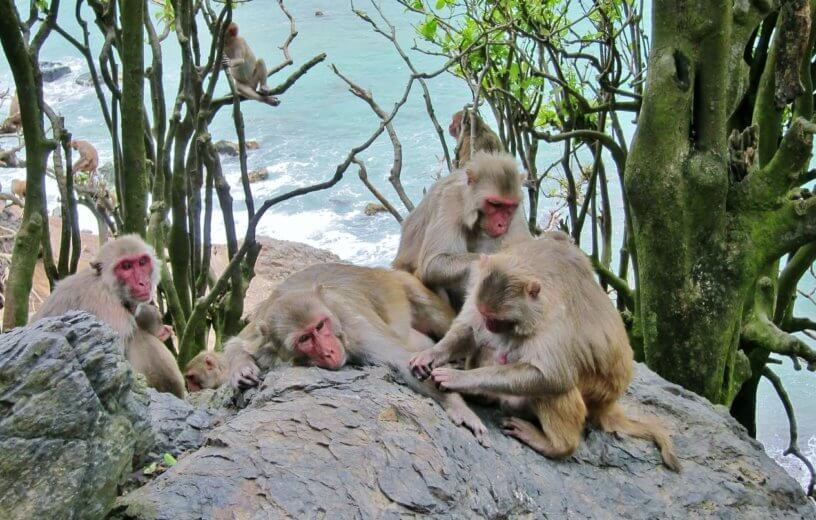EXETER, England — Humans are naturally social beings, but we’re certainly not the only ones on our planet in need of a friend from time to time. A new study conducted by researchers at the University of Exeter finds that monkeys of the rhesus macaques species live longer if they are lucky enough to make close social connections with others.
For over seven years the research team studied the living habits among a group of female macaques living on Cayo Santiago, off the coast of Puerto Rico, often referred to as “Monkey Island.” An extensive data analysis revealed that females with the strongest social connection to another monkey were 11% less likely to die in a given year.
Social connection between monkeys was measured using a number of different attributes, such as time spent together and time spent grooming each other’s fur.
“We can’t say for certain why close social ties help macaques survive,” says lead author Dr. Sam Ellis, of Exeter’s Centre for Research in Animal Behavior, in a release. “Having favored partners could be beneficial in multiple ways, including more effective cooperation and ‘exchange’ activities such as grooming and forming coalitions.
“Many species – including humans – use social interactions to cope with challenges in their environment, and a growing number of studies show that well-connected individuals are healthier and safer than those who are isolated,” he continues.
Overall, the research team focused on four categories of social connection: spending time with other macaques; strong connections between favored partners; how a single friendship can connect one monkey to broader social groups or sub-groups; and rates of cooperative activities like grooming.
A strong connection between partners was found to provide the biggest boost to one’s survival odds, but having many strong social connections was also found to be a strong predictor of survival. Interestingly, connecting to broader social groups and engaging in lots of cooperative activities were not found to prolong survival.
“Having many social connections might mean a macaque is widely tolerated – not chased away from food, for example,” comments senior author Dr. Lauren Brent, also of the University of Exeter. “But it seems having ‘close friends’ brings more important benefits than simply being tolerated. These favored partners have the opportunity to provide each other with mutual support and cooperation, making both parties more likely to survive.”
The study is published in the scientific journal Proceedings of the Royal Society B.
